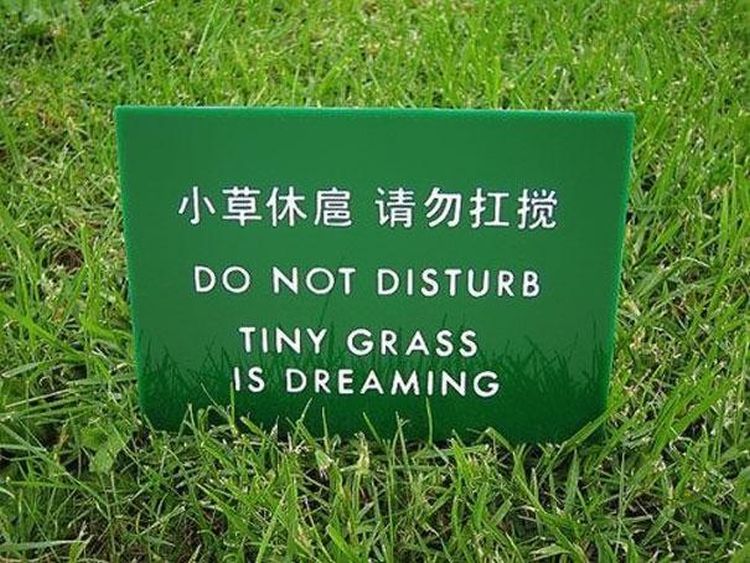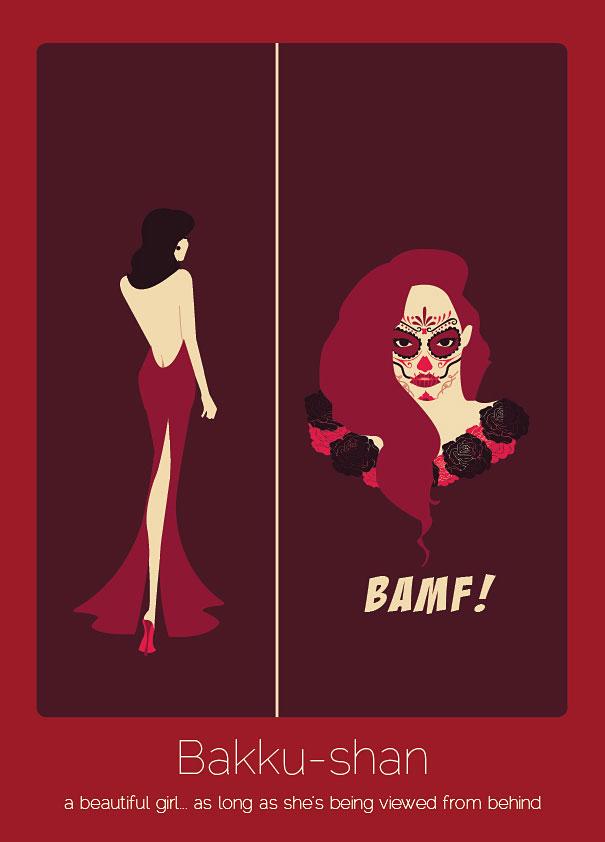TGIF: That Gerund Is Funky. In grammar and usage news this month: a nationwide pun ban; how to pluralize your last name; grammar in Christmas carols; a new book from Steven Pinker; and how to talk like a New Yorker. Continue reading
Category Archives: Pronunciation
Capitalizing and pronouncing Ebola (and the naming of other diseases)
There’s an epidemic in West Africa, and the dreaded “E” word is on everyone’s lips and keypads. But here’s a question: does the devastating disease deserve its capital E, and if so, why? When we write about salmonella or influenza (or flu for short), diabetes or rabies, we don’t crown the names of these deadly scourges with capital initial letters. Why does Ebola get special treatment?
The AP Stylebook explains it simply: “Capitalize a disease known by name of person or geographical area: Alzheimer’s disease, Parkinson’s disease, Ebola virus.” Ebola was named after a tributary of the Congo River in Zaire (now called the Democratic Republic of the Congo), near which the virus was first identified, so it can claim its status as a proper name for life.
And how should we pronounce the name of this awful virus? According to NPR’s standards and practices editor, Mark Memmott, as posted on NPR’s Tumblr, it should be “ee-BOH-luh” (rather than “eh-BOH-la”). But as Memmott advised in his internal memo to NPR colleagues: “It’s important to note that this is guidance, not a dictate from on high. We want to say things correctly, but we also realize that we have correspondents from around the world and that when they speak they may say some things differently. In this case, NPR’s Ofeibea Quist-Arcton is from Ghana. She says ‘eh-BOH-la.’ It’s natural to her. We wouldn’t want to try to force her to say ‘ee-BOH-luh’.” Ebola means “Black River” in Lingala, the language of the DRC’s northwestern region where the tributary can be found. But since Zaire was a Belgian colony between 1908 and 1960, the name of the river has probably been pronounced historically in a French way — i.e. “ay-BOH-luh” (with the sound of an acute accent on the initial E), so “eh” probably best approximates how the name’s first syllable sounded when the virus was first identified and named in the early ’70s. Oxford Dictionaries lists both pronunciations (“eh” and “ee”) in its pronunciation guide.
* * *
While we’re on the subject of naming diseases, here’s another question: is it necessary to keep the apostrophe and possessive ‘s’ in diseases named after those who discovered them? Down’s syndrome, Asperger’s syndrome, Parkinson’s disease and Crohn’s disease are a few examples; is it now more common to refer to them as Down syndrome or Crohn disease? The blog Separated by a common language explains that this actually depends nowadays on which side of the Atlantic you’re on: it’s a little-known British-American usage difference. Quoting Len Leshin, MD from the Down Syndrome: Health Issues site, Separated clarifies the thinking behind this curious usage development:
“Many medical conditions and diseases have been named after a person; this type of name is called an eponym. There has been a long-standing debate in the scientific community over whether or not to add the possessive form to the names of eponyms. For quite a long time, there was no established rule as to which to use, but general usage decided which form is acceptable. So you saw both possessive and non-possessive names in use.”In 1974, a conference at the US National Institute of Health attempted to make a standard set of rules regarding the naming of diseases and conditions. This report, printed in the journal Lancet, stated: “The possessive form of an eponym should be discontinued, since the author neither had nor owned the disorder.”(Lancet 1974, i:798) Since that time, the name has traditionally been called “Down syndrome” in North America (note that “syndrome” isn’t capitalized). However, the change has taken longer to occur in Great Britain and other parts of Europe, for reasons that aren’t quite clear to me.”
For a fascinating history of Down’s syndrome and how it got its name (it was originally called “Mongolism”), read this post on Virtual Linguist.
* * *
Epidemic or endemic?
What exactly is the difference between epidemic and endemic? Although they’re often confused with each other, they have distinctly different meanings.
Epidemic — although it sounds more like an adjective and can be used as such — is more widely heard in its noun form, meaning “a widespread occurrence of an infectious disease in a community at a particular time” or “a sudden, widespread occurrence of a particular undesirable phenomenon” (OED). So the word is completely appropriate to describe the current outbreak in West Africa, while we can also talk about the epidemic of sexting in teenagers or the epidemic of online identity theft.
“A fashion is nothing but an induced epidemic.” — George Bernard Shaw
Endemic is more often heard as an adjective, despite being a noun too, but it is not the adjectival form of epidemic, as is often mistakenly thought. It describes a disease or condition “habitually present in a certain area as a result of permanent local factors; of common occurrence; rife.” And when describing a plant or animal, it means “native to, and especially restricted to, a certain country or area” (OED). So a condition or disease that is endemic isn’t necessarily widespread, rampant or epidemic: the word is focused more on the common and localized nature of the phenomenon than on its prevalence or severity, which might indeed be slight.
“Even modern English people are imperious, superior, ridden by class. All of the hypocrisy and the difficulties that are endemic in being British also make it an incredibly fertile place culturally. A brilliant place to live. Sad but true.”
— Pete Townshend
Pandemic describes “a widespread epidemic that might affect entire continents or even the world: e.g. the Black Death in Europe and AIDS in sub-Saharan Africa.” Thankfully Ebola isn’t yet in this category, although the fear is that it could spread to other parts of Africa (and further afield), becoming the first great pandemic of the 21st century. We all hope fervently that this will not be the case.
* * *
TGIF: That Gerund Is Funky (Sep 26)
TGIF. In language and usage news this fortnight: a school that teaches in Manx Gaelic; an emergency poet; costly slips of the tongue; zombie nouns; an ominous auto-correct error; punctuation problems in a pre-K campaign; and can Benedict Cumberbatch not say penguin? Continue reading
To take or not to take an object: verbs that used to just do are starting to do something too
It’s a strange verb, to grow. Usually we talk about things or people growing intransitively — ie. without an object. “The size of the crowd grew.” “She has grown so tall.” “The government’s power is growing.” There’s really no limit to what can grow, on its own, in an intransitive sense. However, when it comes to using the verb transitively — ie. when we’re talking about “growing something“, rather than seeing it grow under its own steam, then most bets are suddenly off: we only grow transitively when we’re referring to natural, living things. We grow plants, flowers and our own food; we grow beards, and our hair; we even grow pot-bellies — whether we like it or not. But it’s only recently that the transitive use of the verb itself has begun to grow: now embracing inanimate objects and abstract items, grow is beginning to mean “expand” — and you can grow anything from your circle of friends to an economy or an international corporation’s revenue (whereas before they grew only intransitively). The New York Times Manual of Style and Usage advises against this growing trend of growing anything unnatural transitively: “The newer usage of grow to mean expand (grow the business; grow revenue) is business jargon, best resisted.”
Disappear is another dodgy suspect when it comes to its transitive use. Continue reading
Who pronounces foreign words more correctly: Yanks or Brits?
Nowadays it seems to be good etiquette to pronounce loanwords as closely to their native pronunciation as possible. So how do the Yanks and Brits fare comparatively in the face of this challenge? Brits are known to lean more towards pronouncing words literally/phonetically as their English spellings prescribe, whatever their origins; Americans, on the other hand, are more bravely inclined to try and approximate the original pronunciation — even if the attempt is ultimately misguided. (The subject of “hyperforeignisms is tackled further down — and Eddie Izzard puts in his two cents too.) As well as the particular sound of the word’s vowels and consonants, it’s also a matter of syllable emphasis that helps determine how much a word sounds like its foreign forebears.
Although Americans and Brits tend to agree on the pronunciation of most of their linguistic immigrants, there are a number of words that we approach differently depending on which side of the Atlantic we’re from. Here’s a selection of those words, and I’ve denoted with a larger flag the nation that seems to come closer to the original pronunciation (based on both sounds and syllable emphasis). Strangely enough, despite the theory above about Brits sticking to their own phonetic rules, 9 of the 16 words below are pronounced more “authentically” by the Brits, at least by my reckoning. Go figure.
croissant:  KWAH-song
KWAH-song ![]() kruh-SAHNT
kruh-SAHNT
mauve:  MOHV (rhymes with drove)
MOHV (rhymes with drove) ![]() MOV
MOV
address (noun, postal sense):  a-DRESS
a-DRESS ![]() ADD-ress
ADD-ress
cigarette:  si-guh-RET
si-guh-RET ![]() SI-guh-ret
SI-guh-ret
paella: ![]() pah-YEAH-luh
pah-YEAH-luh  pah-YAY-yuh
pah-YAY-yuh
lieutenant: ![]() lef-TEN-uhnt
lef-TEN-uhnt  loo-TEN-uhnt
loo-TEN-uhnt
Van Gogh:  van-GOKH (like “loch”, Lochness) or van-GOFF
van-GOKH (like “loch”, Lochness) or van-GOFF ![]() van-GO
van-GO
Risotto:  rih-ZOT-toe
rih-ZOT-toe ![]() rih-ZOH-toe
rih-ZOH-toe
Pasta:  PASS-tuh (“pass” like “lass”)
PASS-tuh (“pass” like “lass”) ![]() PAH-stuh
PAH-stuh
Please add other words to the comments section below.
Now we come to “hyperforeignisms”: this is where English-speakers try unsuccessfully to emulate the pronunciation of the word’s original language — by getting either the country of origin or the native pronunciation wrong.
Take the word parmesan. Although it names an Italian cheese, it actually derives its spelling from French and therefore should sound like PARM-uh-zan (and that’s how Brits verbalize the stuff they sprinkle on their spaghetti). However, it is often mispronounced as parm-uh-ZHAHN by Americans, who are presumably trying to approximate the Italian name for the cheese — parmigiano, which is pronounced parm-uh-ZHAHN-o in Italian). Sorry guys: it’s a French word.
Lingerie is another one. Americans often call their intimate clothing luhn-juh-RAY — making the final syllable sound like the many French loanwords that end in -é, -er, -et and -ez and are pronounced “-AY”. Yes, lingerie is a French word. But it ends in ‘ie’ – and that sounds like ‘ee’, not ‘ay’. Oy. Repartee also falls into this category: even though it’s from the French word repartie (which sounds like party with a “re” in front), it’s often pronounced by Americans as reparTAY.
Here’s an interesting one. Forte — when referring to a personal strength, something you’re especially good at (or, in fencing, the strongest part of a sword) — comes from the French word, meaning “strong”, and therefore the final ‘e’ should be silent: “FORT”. This shouldn’t be confused with the Italian word forte, which means loud, whose final ‘e’ is pronounced “AY”. But we all say FORT-ay when we’re talking about our personal strengths — just proving that pronunciation isn’t necessarily one of them. Hey — it sounds foreign, so surely we must be saying it correctly.
* * *
Let’s give Eddie Izzard the last word on this subject of pronunciation. Take it away, Eddie:
TGIF: That Gerund Is Funky (July 25)
An appropriate name for this type of doctor ... (seen on Manhattan’s Upper West Side)
TGIF. Language and usage in the news this week: a missing comma in a tweet; how to pronounce a footballer’s name; Zach Braff’s bad grammar; and a different typ(o) of freedom …
* * *
AP sent the Twittersphere into a frenzy when it left an important comma out of one its tweets:
Yes, we do need commas. Even when we’re tweeting …
* * *
Zach Braff used bad grammar on purpose in the title of his new movie, Wish I Was Here. Continue reading
In the news … (June 20)
TGIF: That Gerund Is Funky. Words and language in the news this week include a schoolboy pointing out BMW’s bad grammar; a prime minister’s spelling error and a president’s incorrect pronunciation; the relationship between texting and bad (or good) spelling; and some real Nazis who are also grammar nazis. Continue reading
In the news (May 30)
 Why punctuation matters (Somewhere in America, Memorial Day, May 26)
Why punctuation matters (Somewhere in America, Memorial Day, May 26)
TGIF: Language in the news and on the web this week includes a spelling bee tie, a poetic birthday celebration in Siberia; some words that mean the opposite of themselves; some foreign words that are untranslatable; voting words into the dictionary; a very fashionable pronunciation guide; and a war against euphemism and cliche.
* * *
Two boys won this year’s National Scripps Spelling Bee. As CBS News reported, “Sriram Hathwar of Painted Post, New York, and Ansun Sujoe of Fort Worth, Texas, shared the title after a riveting final-round duel in which they nearly exhausted the 25 designated championship words. After they spelled a dozen words correctly in a row, they both were named champions.”
* * *
To mark the 215th anniversary of the birth of Alexander Pushkin on June 6, one of Russia’s greatest poets, the Siberian city Novosibirsk is going to offer free rides on its underground to anyone who can recite at least two verses from any of his Pushkin’s poems. The BBC reports on this poetic event.
* * *
Here’s one of the reasons I love mental_floss: today it gives us 25 words that are their own opposites – otherwise known as contronyms. “Because of the agency’s oversight, the corporation’s behavior was sanctioned.” Confused? Yeah … That’s what contranyms can do. (And even contranym doesn’t know how to spell itself, let alone decide what it means.)
* * *
Do you think adorkable or duckface should be legitimate, dictionary-worthy words? Well, if you feel strongly enough either way, you can have your say. According to a report in The Economist, Collins Dictionary is going to add a word to its dictionary based on votes collected through Twitter.
* * *
Is your inability to pronounce designers’ names making your life a misery? If so, Harper’s Bazaar has come to the rescue, publishing an A-Z cheat sheet to help you tackle Moschino, Hermes, Miu Miu, Lanvin and more. You never need be embarrassed again when getting your fashion lingo on …
* * *
Bored Panda brings us 30 untranslatable words from other languages – with some attractive illustrations by Anjana Iyer. This picture captures the meaning of the Japanese word bakku-shan, for example, in a way that the English language simply can’t.
Anjana Iyer, from Bored Panda
* * *
Ending on a serious note this week, Adam Gopnik in the New Yorker wrote movingly about the need to speak clearly and directly when conveying hard truths. Commenting after the recent California shooting, Gopnik commended the father of one of the victims for doing just this. “The war against euphemism and cliché matters not because we can guarantee that eliminating them will help us speak nothing but the truth but, rather, because eliminating them from our language is an act of courage that helps us get just a little closer to the truth. Clear speech takes courage.”
* * *
In the news (March 14)
TGIF: That Gerund Is Funky … Words and language in the news this week include a hilarious video about foreign language pronunciation, angst in Germany over an unusual invasion, a slip-up in the supermarket, an interview with Julian Barnes, and an embarrassing spelling mistake.
And find out below the definition of this week’s weird word of the week: engastrimyth … Continue reading
In the news (Jan 31)
In language news this week: different ways of pronouncing Hyundai, the ‘ax versus ask’ question, whether commas are really necessary, and more. Plus a new Weird Word of the Week …
* * *
According to the BBC, there are at least three different approved ways of saying Hyundai, depending on whether you’re in South Korea, the UK or US. “The original Korean pronunciation is closest to HYUN-day (-hy as in Hugh, -u as in bun, -ay as in day, stressed syllables shown in upper case). Hyundai UK, including its adverts, has a different way of saying it: high-UUN-digh (-igh as in high, -uu as in book, British anglicisation). … Hyundai’s US operation…uses the pronunciation HUN-day (-h as in hot, -u as in bun, -ay as in day, US anglicisation).”
* * *
The ‘ax’ versus ‘ask’ question: linguist John McWhorter, in a Los Angeles Times op ed piece, asks: “Using ‘ax’ for ‘ask’ dates back to at least Chaucer, so why do we consider it illiterate today? … As a black linguist, I have come to expect that, during question sessions after any public talk I give on language, someone will ask: “What’s with ‘ax’?”
* * *
The BBC’s Mind the Gap blog identifies 10 American speech habits that grate on British ears.
* * *
Slate asks: will we use commas in the future? “In some ways commas are like ketchup and mustard. We’re glad those things exist. They surely make our french fries and hamburgers taste better. But we’d all survive without them.” Is this really so?
* * *
WWW: Weird Word of the Week:
This week’s word is batterfang: verb: To assail with fists and nails; beat and beclaw. Etymology unknown.










